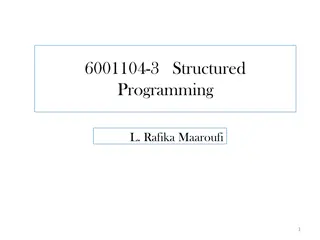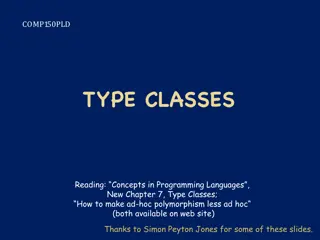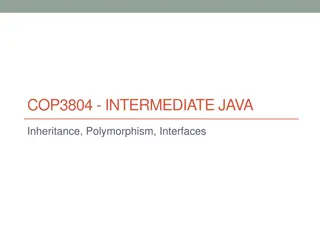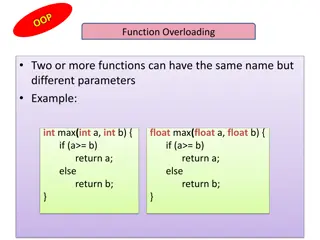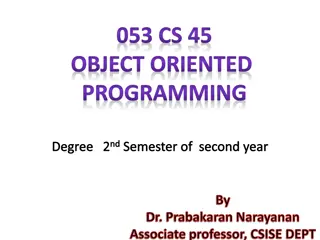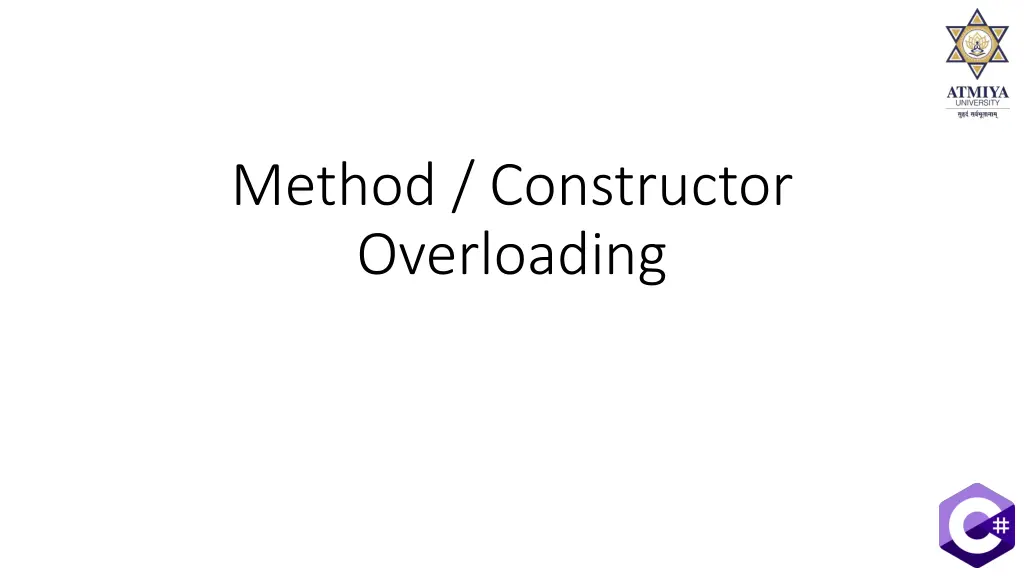
Constructor Overloading in C#
In C#, method overloading allows multiple methods in the same class to share the same name with different parameter declarations, enhancing polymorphism implementation. Similarly, constructor overloading provides flexibility in object creation by allowing various ways to construct objects. Utilizing overloaded constructors, including invoking one constructor from another using 'this', helps minimize code duplication and define default arguments efficiently.
Download Presentation

Please find below an Image/Link to download the presentation.
The content on the website is provided AS IS for your information and personal use only. It may not be sold, licensed, or shared on other websites without obtaining consent from the author. If you encounter any issues during the download, it is possible that the publisher has removed the file from their server.
You are allowed to download the files provided on this website for personal or commercial use, subject to the condition that they are used lawfully. All files are the property of their respective owners.
The content on the website is provided AS IS for your information and personal use only. It may not be sold, licensed, or shared on other websites without obtaining consent from the author.
E N D
Presentation Transcript
Method / Constructor Overloading
Method Overloading In C#, two or more methods within the same class can share the same name, as long as their parameter declarations are different. When this is the case, the methods are said to be overloaded, and the process is referred to as method overloading. Method overloading is one of the ways that C# implements polymorphism. In general, to overload a method, simply declare different versions of it. The compiler takes care of the rest. You must observe one important restriction: The type and/or number of the parameters of each overloaded method must differ. It is not sufficient for two methods to differ only in their return types. They must differ in the types or number of their parameters.
Method Overloading the difference in their return types is an insufficient difference for the purposes of overloading. C# provides certain implicit (i.e., automatic) type conversions. These conversions also apply to parameters of overloaded methods. It is important to understand, however, that the implicit conversions apply only if there is no exact type match between a parameter and an argument.
Method Overloading ref and out participate in overload resolution, the difference between the two alone is not sufficient. For example, In this case, the compiler cannot differentiate between the two versions of MyMeth( ) simply because one uses an out int parameter and the other uses a ref int parameter. Method overloading supports polymorphism because it is one way that C# implements the one interface, multiple methods paradigm.
Overload Constructors Like methods, constructors can also be overloaded. Doing so allows you to construct objects in a variety of ways. Invoke an Overloaded Constructor Through this When working with overloaded constructors, it is sometimes useful for one constructor to invoke another. In C#, this is accomplished by using another form of the this keyword. The general form is shown here: When the constructor is executed, the overloaded constructor that matches the parameter list specified by parameter-list2 is first executed. Then, if there are any statements inside the original constructor, they are executed.
Overload Constructors One reason why invoking overloaded constructors through this can be useful is that it can prevent the unnecessary duplication of code. Another advantage is that you can create constructors with implied default arguments that are used when these arguments are not explicitly specified.


